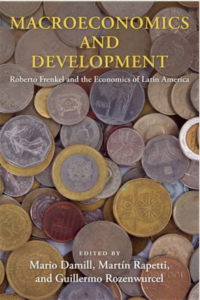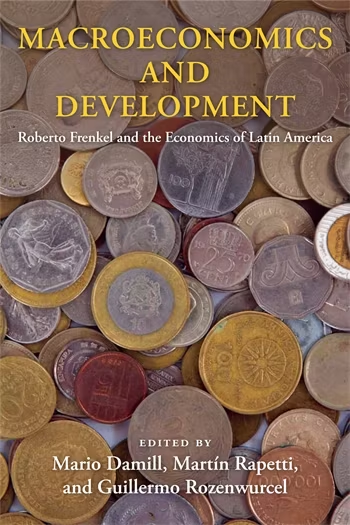
Latin American neo-structuralism is a cutting-edge, regionally focused economic theory with broad implications for macroeconomics and development economics. Roberto Frenkel has spent five decades developing the theory’s core arguments and expanding their application throughout the discipline, revolutionizing our understanding of high inflation and hyperinflation, disinflation programs, and the behavior of foreign exchange markets as well as financial and currency crises in emerging economies.
The essays in this collection assess Latin American neo-structuralism’s theoretical contributions and viability as the world’s economies evolve. The authors discuss Frenkel’s work in relation to pricing decisions, inflation and stabilization policy, development and income distribution in Latin America, and macroeconomic policy for economic growth. An entire section focuses on finance and crisis, and the volume concludes with a neo-structuralist analysis of general aspects of economic development. For those seeking a comprehensive introduction to contemporary Latin American economic thought, this collection not only explicates the intricate work of one of its greatest practitioners but also demonstrates its impact on the growth of economics.
About the Authors
Mario Damill
Researcher
Center for the Study of State and Society (CEDES)
Martin Rapetti
Professor
University of MA, Amherst
Guillermo Rozenwurcel
Principal Researcher
The National Scientific and Technical Research Council (CONICET)
Guillermo is presently Principal Researcher at CONICET Visiting Fellow at CEDES and Director at Centro de iDeAS- UNSAM.He is also Full Professor at the School of Economics (UBA) and the School of Politics and Government (UNSAM).
 Mario Damill
Mario Damill

 Jeronim Capaldo
Jeronim Capaldo Kevin Gallagher
Kevin Gallagher Gabriela Plump
Gabriela Plump Anya Schiffrin
Anya Schiffrin Joseph Stiglitz
Joseph Stiglitz